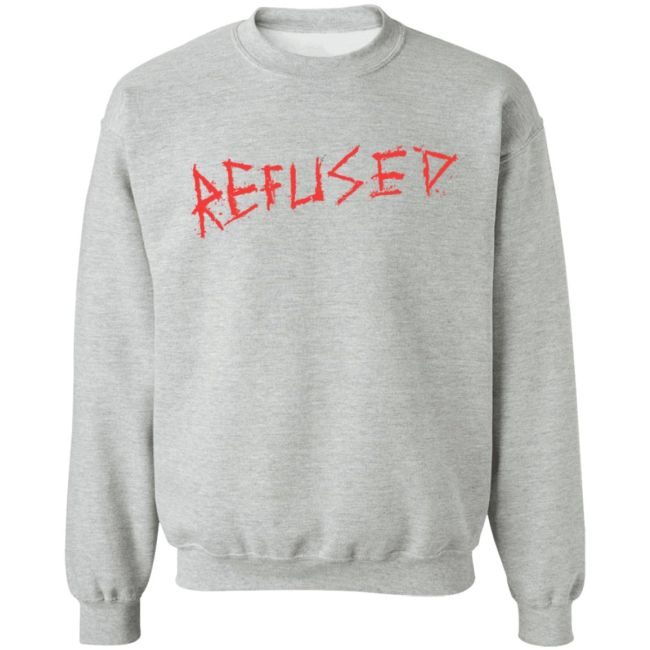Refused Merch has emerged as a hot trend in the world of fandom, making it an essential part of every fan’s collection. This phenomenon is not just about flaunting one’s love for their favorite band, artist, or movie franchise but also about expressing individuality and belonging to a community that shares similar interests.
The craze behind Refused Merch can be attributed to several factors. First and foremost, it serves as a physical representation of one’s admiration for a particular entity. It allows fans to wear their hearts on their sleeves – quite literally – by showcasing their passion through clothing items, accessories, posters, or other forms of merchandise.
Furthermore, owning Refused Merch fosters a sense of connection between fans and the entities they adore. By purchasing these items – often limited edition releases – fans feel closer to their idols; they possess something tangible that represents an aspect of the band or artist’s creative journey. This emotional attachment amplifies when these products are autographed or have been used during concerts or film sets, making them priceless mementos.
Another reason why Refused Merch is so popular among fans is its role in enhancing camaraderie within the fandom community. Having shared symbols like logos and iconic images from merchandise helps create bonds between strangers who share common interests. At concerts or fan gatherings where everyone sports related merchandises creates an environment where people instantly connect over shared passions.
Moreover, this form of merchandising offers fans another avenue to support their beloved entities financially. In an era where digital streaming platforms pay artists pennies per stream, buying merchandise provides direct monetary support which often goes back into producing more music or content that fans enjoy.
In addition to supporting artists directly, many bands and franchises use sale proceeds from Refused Merch for philanthropic causes close to their heart. Thus buying such merchandise also gives fans an opportunity to contribute towards social good indirectly while showing off their allegiance proudly.
Finally yet importantly is the investment factor. Some Refused Merch, especially those that are limited edition or associated with iconic moments in a band or franchise’s history, appreciate over time. Fans who buy these items not only get to cherish them but might also profit from their sale in the future.
In conclusion, the craze for Refused Merch is not just about consumerism; it’s an intricate blend of self-expression, community bonding, financial support for artists and franchises, philanthropy and potential investment. It is indeed a must-have for every fan as it allows them to physically embody their passion while contributing positively to the entities they love so much.

